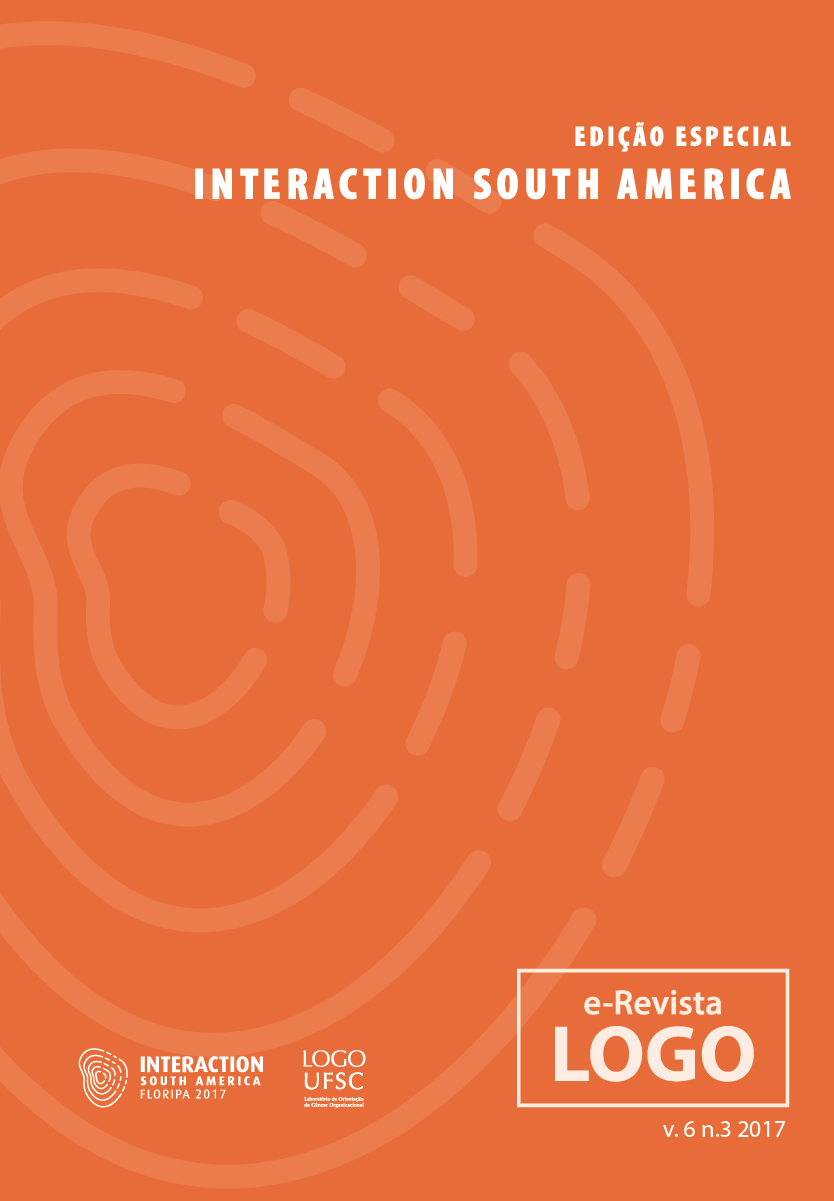Modelo de design para o comportamento saudável como suporte para projetos de educação nutricional infantil
Palavras-chave:
Modelo de Design para o Comportamento Saudável, Processo de Projeto, Nutrição Infantil.Resumo
Este artigo aborda o processo de aplicação do Modelo de Design para o Comportamento Saudável (MDCS - Ludden e Hekkert, 2014) como suporte para a criação de jogos focados no estímulo da alimentação saudável infantil. O MDCS foi desenvolvido para potencializar projetos que visam incentivar atitudes para o bem-estar dos usuários. Utilizando-se os princípios do MDCS na condução do processo de projeto, foi realizado um workshop com a participação de designers e mães com filhos em idade pré-escolar. O workshop desafiou os participantes a criar jogos de interação entre as crianças e os alimentos saudáveis. A partir da análise da dinâmica criativa das equipes, este artigo discute as características e potencialidades do MDCS como um instrumento para aperfeiçoar os processos projetuais focados na alimentação saudável infantil e prospectar novas possibilidades de projeto para prevenção da obesidade.Referências
BHAMRA, T. A.; LILLEY, D.; TANG, T. Sustainable Use: Changing Consumer Behaviour Through Product Design. In: CIPOLLA, C.; PERUCCIO, P. (Eds.). Changing the Change: Design, Visions, Proposals and Tools: Proceedings. Italy: Torino, 2008. p. 1-13. DisponÃvel em: <http://www.allemandi.com/university/ctc.pdf>. Acesso em: 31 jan. 2017.
BUCHANAN, R. Design Research and the New Learning. Design Issues, Cambridge (MA), v. 17, n. 4, p. 3-23, May. 2001.
LILLEY, D. Design for Sustainable Behaviour: Strategies and Perceptions. Design Studies, Oxford, v. 30, n. 6, p. 704-720, 2009.
LOCKTON, D.; HARRISON, D.; STANTON, N. The Design with Intent Method: a Design Tool for Influencing User Behavior. Applied Ergonomics, [s.l.], v. 41, n. 3, p. 382-392, may. 2010.
LUDDEN, G.; HEKKERT, P. Design for Healthy Behavior Design Interventions and Stages of Change. In: SALAMANCA, J., DESMET, P., BURBANO, A., LUDDEN, G., MAYA, J. (Eds.). Proceedings of the Colors of Care: The 9th International Conference on Design & Emotion. Ediciones Uniandes, Bogotá, 2014. p. 482-488.
MURILLO, A. et al. Modeling Eating Behaviors: the Role of Environment and Positive Food Association Learning via a Ratatouille Effect. Mathematical Biosciences and Engineering, [s.l.], v. 13, n. 4, p. 841-855, 2016.
NIEDDERER, K. et al. Creating Sustainable Innovation through Design for Behaviour Change: Full Project Report. Leicestershire, UK: Project Partners & AHRC, 2014.
PROCHASKA, J. O.; DICLEMENTE, C. C.; NORCROSS, J. C. In Search of How People Change. American Psychologist, [s.l.], 47, n. 9, p. 1102-1114, 1992.
TROMP, N. Social Design: How Products and Services Can Help us Act in Ways that Benefit Society. 224 f. 2013. (Ph.D.thesis) - Industrial Design Engineering, Delft University of Technology, Netherlands, 2013.
Downloads
Publicado
Edição
Seção
Licença
This journal, following the recommendations of the Open Access movement, provides public access to all its content, following the principle that free access to research generates a greater global exchange of knowledge. Such access is associated with the reading and citing an author's work.
The author must ensure:
-
that there is a full consensus of all co-authors in approving the final version of the document and its submission for publication.
-
that their work is original, and if the work and / or words of other people were used, they were duly recognized.
Plagiarism in all its forms constitute unethical publication behavior and is unacceptable.
The articles and other published works, become the property of the journal.
The contents of e-Journal LOGO are licensed under a Creative Commons License 4.0 by. It reserves the right to use software or other methods of detecting plagiarism to analyze the submitted works.
Under the license you have the right to:
- Share - copy and redistribute the material in any media or format
- Adapt - remix, transform, and create from material to any purpose, even if commercial.
- The licensor can not revoke these rights as long as you respect the license terms.
According to the following terms:
- Assignment - You must give the appropriate credit, provide a link to the license and indicate if changes have been made. You must do so in any reasonable circumstance, but in no way do you suggest to the licensor to support you or your use.
- No additional restrictions - You may not apply legal terms or technological measures that legally restrict others from doing anything that the license permits.
The authors of papers submitted to the e-Journal LOGO authorize their publication in physical and electronic media for academic purposes. The authors also agree on the distribution of articles by national and international indexing databases, whether or not for profit, and can be reproduced as long as the source is cited.
O autor deve garantir:
- que haja um consenso completo de todos os coautores em aprovar a versão final do documento e sua submissão para publicação.
- que seu trabalho é original, e se o trabalho e/ou palavras de outras pessoas foram utilizados, estas foram devidamente reconhecidos.
Plágio em todas as suas formas constituem um comportamento antiético de publicação e é inaceitável.
Os artigos e demais trabalhos publicados, passam a ser propriedade da revista.
Os conteúdos de e-Revista LOGO estão licenciados sob uma Licença Creative Commons 4.0 by. Reserva-se o direito de usar software ou otros métodos de detecção de plágio para analisar os trabalhos submetidos.
Segundo a licença você tem direito de:
- Compartilhar — copiar e redistribuir o material em qualquer suporte ou formato
- Adaptar — remixar, transformar, e criar a partir do material para qualquer fim, mesmo que comercial.
- O licenciante não pode revogar estes direitos desde que você respeite os termos da licença.
De acordo com os termos seguintes:
- Atribuição — Você deve dar o crédito apropriado, prover um link para a licença e indicar se mudanças foram feitas. Você deve fazê-lo em qualquer circunstância razoável, mas de maneira alguma que sugira ao licenciante a apoiar você ou o seu uso.
- Sem restrições adicionais — Você não pode aplicar termos jurídicos ou medidas de caráter tecnológico que restrinjam legalmente outros de fazerem algo que a licença permita.


